“One day, the king realized that the gold and silver in his treasury was running low. He became distressed and asked his minister for advice. The minister said without hesitation, “We will impose a new tax.” The king nodded in agreement and instructed his minister to implement his suggestion. Tax collectors began touring cities and villages, accompanied by police officers, forcing people to pay the new tax. Those who refused to pay were humiliated, beaten, and imprisoned. One day, the people’s patience ran out, and their anger exploded. They marched in a huge crowd toward the royal palace, their voices rising loudly and indignantly at the injustice. When the king learned of what had happened, he allowed a delegation representing the demonstrators to meet with him. He listened attentively to the moving pamphlet the delegation members had to say about hunger, prisons, taxes, and the unjust minister. He expressed his astonishment and disapproval at what he heard, and said in a trembling, ashamed voice, “How can I ask my Lord on the Day of Judgment? Can I oppress my subjects without even knowing it? I, who dedicated my life to serving the needy, the poor, the orphans, and the widows?!” He stood up and announced in a stern voice the dismissal of the minister from his position and the confiscation of his palaces and wealth as punishment for his injustice and out of respect for the will of the people. The delegation left the royal palace and informed the disaffected people of what had happened. They shouted joyfully, thanking the king for his support of justice and righteousness. However, the next day, the tax collectors continued their tour of houses and shops.
With this vision, Zakaria Tamer’s text opens up to scenes in which characters dressed in symbolic garb freely express social and economic concerns and the setbacks associated with a political reality that has shattered the constraints that could have strained the conscience of the ruler, reminding him of his limits and warning him against the transgressions that are killing his people.
Tigers on the Tenth Day
د.ا5.00
A collection of symbolic stories that addresses oppression and freedom through a sarcastic style and intense language.
Available on backorder
| Categories: | Literature, stories, Literary criticism, satirical literature |
|---|---|
| Tags: | literature, politics, stories, thought |
| Author | |
|---|---|
| Year | |
| Publisher | Riyadh Al-Rayyes Books and Publishing |
You may also like…
-
I Saw in What the Sleeper Sees
د.ا9.00This book contains a collection of short dreams that blend reality and symbolism, reflecting his reflections on life, politics, and existence.
-
Spring in Ashes
د.ا5.00In “Spring in Ashes,” Zakaria Tamer presents satirical short stories that reveal the contradictions of Arab reality and the cruelty of power.
-
Sea Prayer
د.ا12.00Sea Prayer is a poignant and poetic reflection on the suffering of refugees, told as a letter from a Syrian father to his lost child.
-
The Nightingale’s Prayer
د.ا5.00The novel tells a story of revenge that turns into love, revealing a woman’s struggle with social injustice in a conservative rural environment.
Related products
-
Prisoner of Heaven
د.ا7.10After the shadow of the wind and the angel game, I ended my strange meeting with Carlos Zafon in the third part of the Tomb of Forgotten Books series in this piece that I read while trying to understand what was going on in his head, which wanted the prisoner of heaven to tell us the dark nights of Barcelona from the window of its prisons, that prison that embraced Martin for a long time and through which he excelled in writing The Game of the Angel, which was the hero of that novel David Martin and Isabella, and we got to know their end, which was not confirmed by the lines. The writer also explains that what we can consider a coincidence with us may be wisely studied and what we interact with with all honesty may be fake and obsolete as the first boot, the past is just images stuck in our heads and just a glance of it returns to expose itself, and opens new cracks in our hearts, pushing you to search and explore what the truth is and to what extent it can comfort you or in any proportion that may make you a wreckage between the legs, yet the search for it is The way of salvation,
د.ا8.52 -
Flower swordsman
د.ا7.10The Swordsman of Flowers is a collection of prose texts that combines irony and sadness and expresses issues of freedom and human oppression
د.ا8.52 -
Land of sad oranges
د.ا2.13Ghassan Kanafani is a Palestinian novelist, storyteller, and journalist, and is considered one of the most famous Arab writers and journalists in the twentieth century. His literary works, including novels and short stories, were deeply rooted in Arab and Palestinian culture
د.ا3.55 -
The hat and the prophet
د.ا2.13Ghassan Kanafani is a Palestinian novelist, storyteller, and journalist, and is considered one of the most famous Arab writers and journalists in the twentieth century. His literary works, including novels and short stories, were deeply rooted in Arab and Palestinian culture
د.ا3.55 -
For Bread Alone
د.ا4.97For Bread Alone , al-Khubz al-Hafi) is a controversial autobiographical work by Mohammed Choukri. It was written in Arabic in 1972 and translated into English by Paul Bowles in 1973.[1] In 1980, it was published in French as Le Pain Nu in a translation by Tahar Ben Jelloun. The novel has been translated into 39 foreign languages[2] and adapted into a French graphic novel by Abdelaziz Mouride [fr].[3]
د.ا7.10 -
Returning to Haifa
د.ا2.13Ghassan Kanafani is a Palestinian novelist, storyteller, and journalist, and is considered one of the most famous Arab writers and journalists in the twentieth century. His literary works, including novels and short stories, were deeply rooted in Arab and Palestinian culture
د.ا3.55 -
Revolution of 36-39 in Palestine
د.ا2.13Until his early death, Ghassan Kanafani published eighteen books, and wrote hundreds of articles and studies on culture, politics, and the struggle of the Palestinian people. Following his assassination, all of his books were republished in Arabic, in several editions
د.ا3.55 -
A world that is not ours
د.ا2.13Ghassan Kanafani is a Palestinian novelist, storyteller, and journalist, and is considered one of the most famous Arab writers and journalists in the twentieth century. His literary works, including novels and short stories, were deeply rooted in Arab and Palestinian culture
د.ا3.55

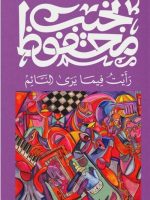
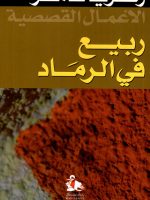
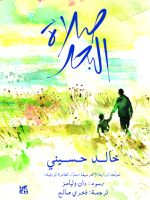
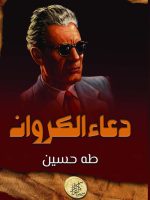
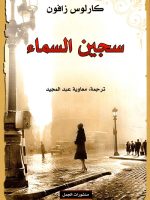
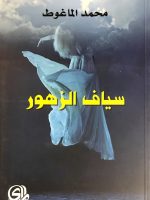
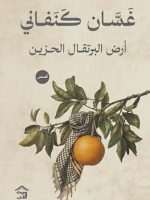
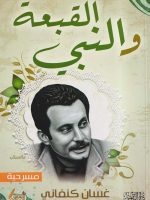
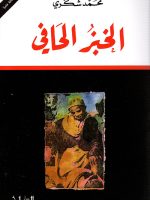
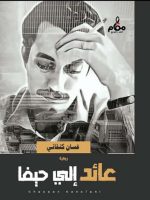
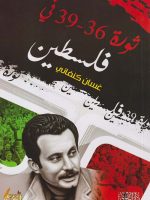
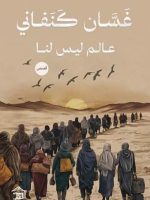
Be the first to review “Tigers on the Tenth Day”